Editorial

The Other Witch Trials
Everyone knows about the Salem Witch Trials. There are countless books, movies, and documentaries about it. The town itself has capitalized on its history and turned itself into a tourist attraction. I’ve been there a few times and it’s a lot of fun. However – Salem may be the most talked about, but it wasn’t the first or the worst. So let’s take a look at the other witch trials
- Switzerland – In Valais (Switzerland/France) in 1428, what’s thought to be the first witch trials on the European continent began. According to a delegation that was formed, all that was needed to condemn someone was for three people to say that they were a witch. Then they were arrested and tortured until they confessed to being in league with the Devil. Between 1428 and 1447 almost four hundred people were executed.
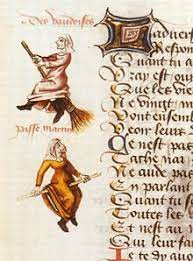
- Trier, Germany – Witch hunts were started in Trier by Archbishop Johann von Schöneburg. To prove loyalty to Jesus, he wanted to get rid of the witches, Jews, and Protestants. From 1584 to 1593, three hundred people were tortured and burned at the stake.
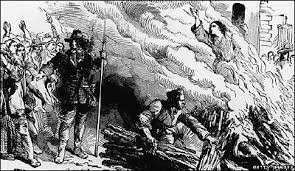
- North Berwick, Scotland – When sailing to Copenhagen to marry Princess Anne of Denmark, King James VI of Scotland ran into a big storm. He had to stop in Norway to ride it out. He blamed it on witchcraft and set out on a mission to get rid of all the witches. He wrote a manual advocating a witch hunt called Daemonologie. A woman named Gilly Duncan was the first accused witch. She was tortured, admitted to being in league with the Devil, and burned at the stake. There is no record of the number of people executed in North Berwick. The witch trials spread and historians estimate that between 1560 and 1707, over three thousand people were executed.
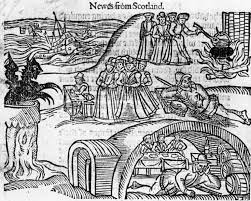
- Fulda, Germany – Prince-abbot Balthasar von Dernbach had been in exile for a year. When he was back in power, he wanted to get back in the Church’s good graces. He set out to purge the city of witchcraft starting in 1603. The first victim was a pregnant woman named Merga Biem. There are no official records, but it’s estimated that over two hundred people were executed by 1606.
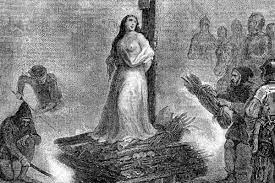
- Pendle, England – Roger Nowell, the Justice of the Peace at Pendle Hill was charged with investigating witchcraft. Local woman Alizon Device was accused of using witchcraft to give someone a stroke. She confessed and accused others of being witches. Twelve people were accused of killing ten people through witchcraft. Ten of the twelve were hanged.
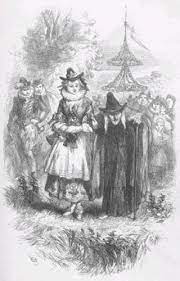
- Bamberg, Germany – The Bamberg witch trials took place between 1626 and 1631. A group of locals went to the authorities complaining that witches destroyed their crops. Prince Bishop Johann Georg Fuchs von Dornheim began an investigation. One woman (while being tortured) confessed to sending the frost. There were no rules with this witch hunt. While being tortured, people accused their friends and admitted to everything from having sex with the Devil to using black magic. So many people were accused that a special building was built just to torture them. They called it the Witch House. The husband of one of the accused escaped and went to the Emporer in Nuremberg, Germany. The trials were stopped, but not before nine hundred people were burned at the stake.
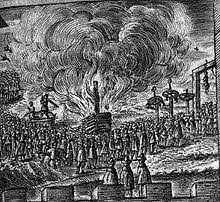
- Torsåker, Sweden – Laurentius Christophori Hornæus, minister of Ytterlännäs began investigating witchcraft in his parish. He had a couple of boys looking for the Devil’s mark on women’s foreheads as they went to church. They accused Hornæus’s wife and of course, nothing happened. Sixty-five women and six men were accused of kidnapping children and taking them to their Sabbat ritual at a place called Blokula (A place in Swedish folklore where the Devil supposedly held court). The accused were tortured until they confessed. They were all beheaded and burned in one day
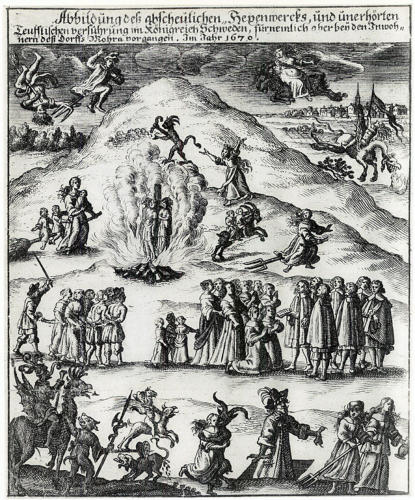
- Doruchów, Poland – The Doruchów trials took place around 1775. Doruchów officials were asked to investigate possible witchcraft by members of a neighboring village. Fourteen women were accused. Three of them were tortured and died in prison and eleven were burned at the stake.
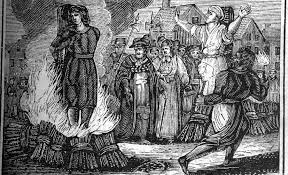
Luckily the majority of people today are not afraid of witches. The days of the witch trials are gone and any persecution has been relegated to ignorant posts on social media. And hopefully, one day that will pass too. So mote it be!!
https://www.history.com/news/beyond-salem-6-lesser-known-witch-trials
https://www.thecollector.com/european-witch-hunting/
Marla
0
